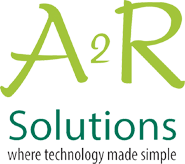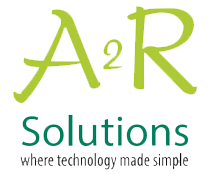
Understanding Financial & Sales Management Software
Introduction
Managing a business’s finances, accounts, and sales can be overwhelming. That’s where specialized software comes into play. With financial management software, accounting management software, and sales and customer management software, businesses can streamline their operations, improve accuracy, and enhance customer relationships. In this article, we’ll delve into these tools, their features, and how they can benefit your business.
Understanding Financial Management Software
Definition and Purpose
Financial management software is designed to manage and streamline a business’s financial activities. From budgeting and forecasting to real-time financial reporting, these tools help companies keep track of their financial health.
Key Features
- Budgeting and Forecasting Tools: Allows businesses to plan their finances and predict future financial outcomes.
- Real-time Financial Reporting: Provides up-to-date financial data for better decision-making.
- Expense Management: Helps monitor and control business expenses.
Benefits for Businesses
Using financial management software can lead to better financial control, reduced errors, and more informed decision-making. It also saves time and resources, allowing businesses to focus on growth.
Exploring Accounting Management Software
Definition and Core Functions
Accounting management software focuses on the day-to-day management of a business’s financial transactions. This includes tracking income, expenses, invoicing, and ensuring compliance with tax laws.
Key Features
- Invoicing and Billing: Simplifies the process of sending invoices and tracking payments.
- Payroll Management: Automates employee payroll calculations and payments.
- Tax Preparation and Compliance: Ensures all financial activities comply with tax regulations.
Advantages for Business Operations
Accounting management software improves accuracy, ensures compliance, and makes it easier to manage financial records. This leads to better financial oversight and more efficient operations.
Diving into Sales and Customer Management Software
Definition and Importance
Sales and customer management software, often referred to as CRM (Customer Relationship Management) software, helps businesses manage their interactions with current and potential customers. It’s crucial for improving customer relationships and boosting sales.
Essential Features
- CRM Capabilities: Tracks customer interactions and stores customer data.
- Sales Tracking and Reporting: Monitors sales performance and provides insights.
- Customer Support Management: Enhances customer service through efficient ticketing and support systems.
Impact on Customer Relations and Sales
Using sales and customer management software leads to improved customer satisfaction, better sales tracking, and enhanced customer service. It helps businesses build stronger relationships with their customers and increases sales efficiency.
Integration of Financial, Accounting, and Sales Software
Benefits of Integrated Systems
Integrating financial, accounting, and sales software provides a holistic view of a business’s operations. It ensures data consistency and improves workflow efficiency.
How Integration Enhances Business Efficiency
Integrated systems eliminate data silos, reduce manual data entry, and provide comprehensive insights across different business functions. This leads to better decision-making and streamlined processes.
Key Features to Look for in Financial Management Software
When choosing financial management software, look for features like:
- Budgeting and Forecasting Tools
- Real-time Financial Reporting
- Expense Management
Essential Features in Accounting Management Software
Important features in accounting management software include:
- Invoicing and Billing
- Payroll Management
- Tax Preparation and Compliance
Important Features in Sales and Customer Management Software
When selecting sales and customer management software, consider features like:
- CRM Capabilities
- Sales Tracking and Reporting
- Customer Support Management
Choosing the Right Software for Your Business
Assessing Business Needs
Identify your business’s specific needs and challenges. Consider factors like business size, industry, and budget.
Comparing Software Options
Compare different software options based on their features, ease of use, and cost. Read reviews and seek recommendations.
Making the Final Decision
Choose the software that best meets your business needs and offers the best value for money. Ensure it integrates well with your existing systems.
Implementing Financial Management Software
Steps to Successful Implementation
- Planning: Define your goals and requirements.
- Customization: Tailor the software to your business needs.
- Testing: Test the software thoroughly before full deployment.
Training and Support
Provide adequate training for your team and ensure ongoing support is available.
Common Challenges and Solutions
Challenges like data migration and user resistance can occur. Address these by having a clear plan and offering support.
Implementing Accounting Management Software
Best Practices for Implementation
- Ensure Data Accuracy: Clean up your financial data before migration.
- Compliance: Ensure the software meets regulatory requirements.
- User Training: Train users on the new system.
Ensuring Compliance and Accuracy
Regularly audit your financial records and ensure the software is updated to comply with changing regulations.
Troubleshooting Common Issues
Common issues like data errors can be resolved by regular system checks and user training.
Implementing Sales and Customer Management Software
Effective On-boarding Strategies
Introduce the software gradually and provide comprehensive training to ensure smooth adoption.
Optimizing User Adoption
Encourage user feedback and make necessary adjustments to improve usability.
Addressing Common Hurdles
Issues like resistance to change can be mitigated by clear communication and demonstrating the software’s benefits.
The Future of Financial, Accounting, and Sales Management Software
Emerging Trends and Technologies
The future of management software includes trends like AI, machine learning, and advanced analytics.
The Role of AI and Automation
AI and automation are transforming how businesses manage their finances, accounts, and sales, making processes more efficient and accurate.
Predictions for the Next Decade
Expect more integration, enhanced data security, and greater use of AI-driven insights in management software.
Conclusion
In conclusion, financial management, accounting management, and sales and customer management software are essential tools for modern businesses. They streamline operations, improve accuracy, and enhance customer relationships. By integrating these systems, businesses can achieve greater efficiency and make better-informed decisions.
Are you looking for accounting software companies in Dubai, business accounting software companies in Dubai, HR & Payroll software companies in Dubai, sage 50 UK accounting software in Dubai or sage 300 erp in Dubai at very competitive pricing? Contact us for accounting software companies in Dubai, business accounting software companies in Dubai, HR & Payroll software companies in Dubai, sage 50 UK accounting software in Dubai or sage 300 erp in Dubai at very genuine pricing.



